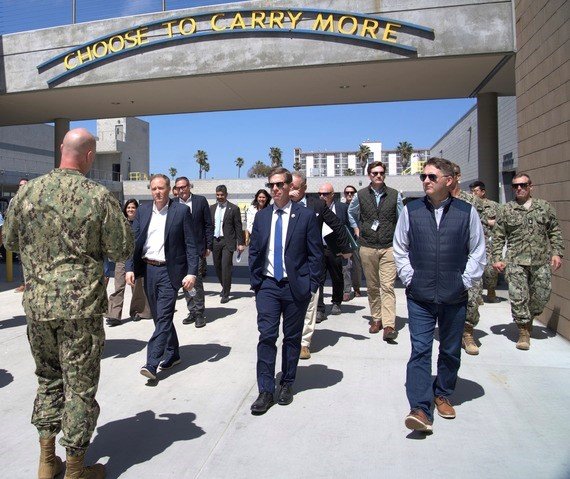EPA Administrator Lee Zeldin Visits San Diego to Survey Tijuana River Sewage Crisis
SAN DIEGO — Earlier this week, U.S. Environmental Protection Agency (EPA) Administrator Lee Zeldin traveled to San Diego, California, to survey the Tijuana River Sewage Crisis. This decades-long problem of discharge of untreated sewage and contaminated stormwater from Mexico flowing into the United States has left residents sick and they are demanding a permanent end to this.
Administrator Zeldin met with Mexican officials, visited the South Bay International Wastewater Treatment Plant, led a roundtable with elected leaders and local stakeholders, held a press conference, toured the southern border via helicopter, and met with Navy Seals at the Naval Special Warfare Center in Coronado.
“This visit was an imperative next step to finally bring this decades long issue to an end. The people of San Diego want this matter resolved once and for all,” said EPA Administrator Zeldin. “The plan needs to be all-encompassing to end this crisis, it must all be finished as rapidly as possible, and it must be completed in a way that also plans for the future, with Tijuana’s population continuing to increase. The conversation I had with Mexican authorities was promising and I hope this is the start of a new collaborative relationship of transparency and honesty and one laser-focused on cleaning up the river and keeping it clean for decades to come.”
Upon arriving in San Diego, Administrator Zeldin met with Mexico Secretary of Environment and Natural Resources Alicia Bárcena for an over 90-minute-long discussion about this crisis. Secretary Bárcena communicated throughout the meeting that it is a top priority of the new Mexican President Claudia Sheinbaum to resolve this issue once and for all. Both sides discussed the need for Mexico to commit to working with the United States and be a collaborative working partner. Administrator Zeldin presented his counterpart with a list of action items to permanently end the crisis.
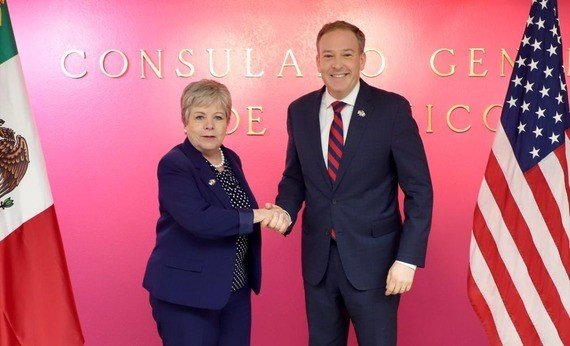
On Earth Day, Tuesday, April 22, 2025, Administrator Zeldin started his day by touring the South Bay International Wastewater Treatment Plant, which currently treats up to roughly 25 million gallons of water per day. He was joined by Representatives Darrell Issa (R-CA-48), Juan Vargas (D-CA-52), Mike Levin (D-CA-49), Sara Jacobs (D-CA-51), former Representatives Mike Garcia and Brian Bilbray, newly appointed Commissioner for the U.S. Sector of the International Boundary and Water Commission (IBWC) Chad McIntosh, and local and state elected officials. The group toured multiple locations along the U.S-Mexico border, and the facility, to see the impact and damage from Mexican sewage.
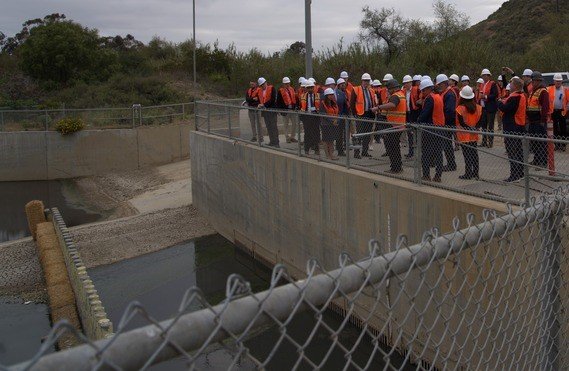
Following the tour, Administrator Zeldin traveled to the Marine Corps Recruit Depot for a roundtable with a wide range of elected officials from the local, state, and federal levels on the impact of this crisis on the San Diego community. Administrator Zeldin was joined by Representatives Issa, Vargas, Levin, and Jacobs, former Representatives Garcia and Bilbray, Assemblyman Jeff Gonzalez (AD-36), San Diego County Supervisor Jim Desmond, Fourth District Supervisor Curt Hagman, City of Chula Vista Mayor John McCann, Coronado Mayor John Duncan, Vista Mayor John Franklin, America Rivers CEO Tom Kiernan, former Imperial Beach Council Member Pat Bilbray, and others.
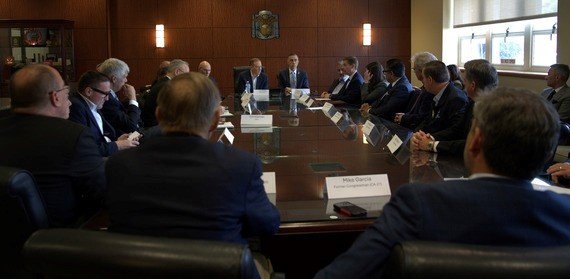
The group then held a press conference to recap the Administrator’s visit with the Mexican government the day before, the tour of the water plant, and future action items to resolve the crisis.
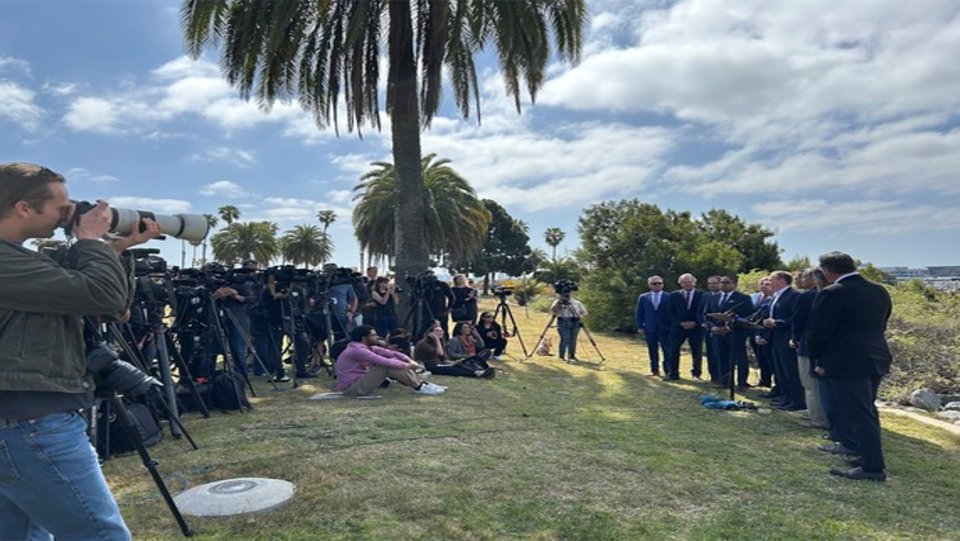
To get a broader understanding of areas of concern on the Mexican and American sides of the border, Administrator Zeldin took a helicopter tour with U.S. Customs and Border Protection. The tour included Imperial Beach, the South Bay International Wastewater Treatment Plant, Coronado Beach and other areas being impacted by the sewage crisis.
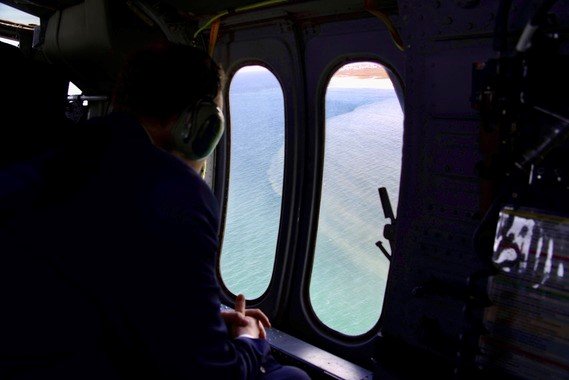
The day concluded at the Naval Special Warfare Center, where Administrator Zeldin met with leadership, toured the Navy SEAL training facility, and heard their firsthand accounts of dealing with the sewage and how it impacts the SEALS.
